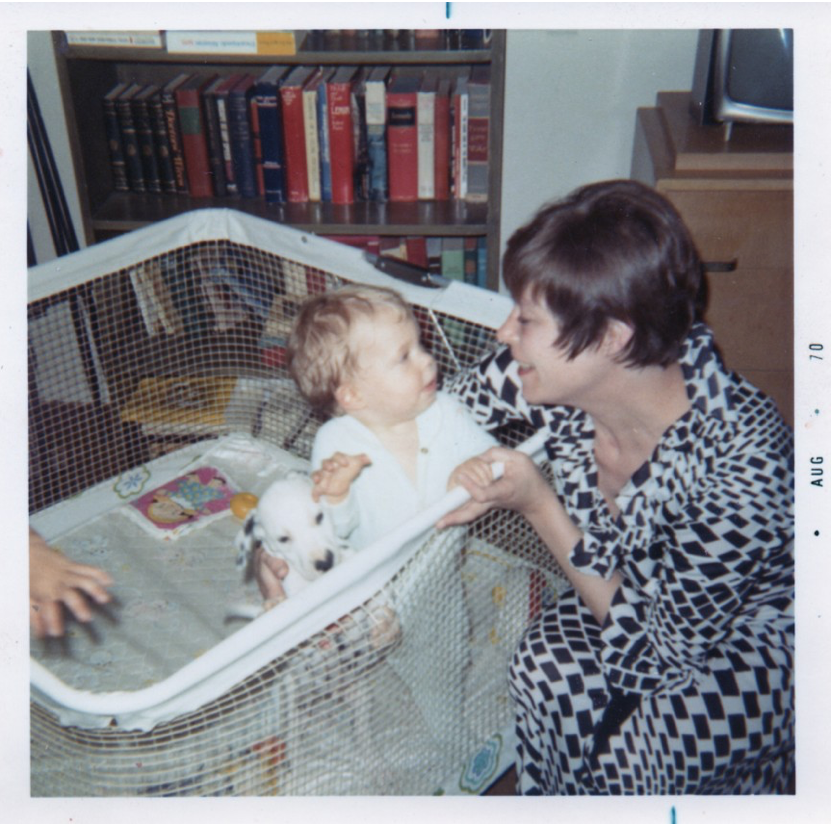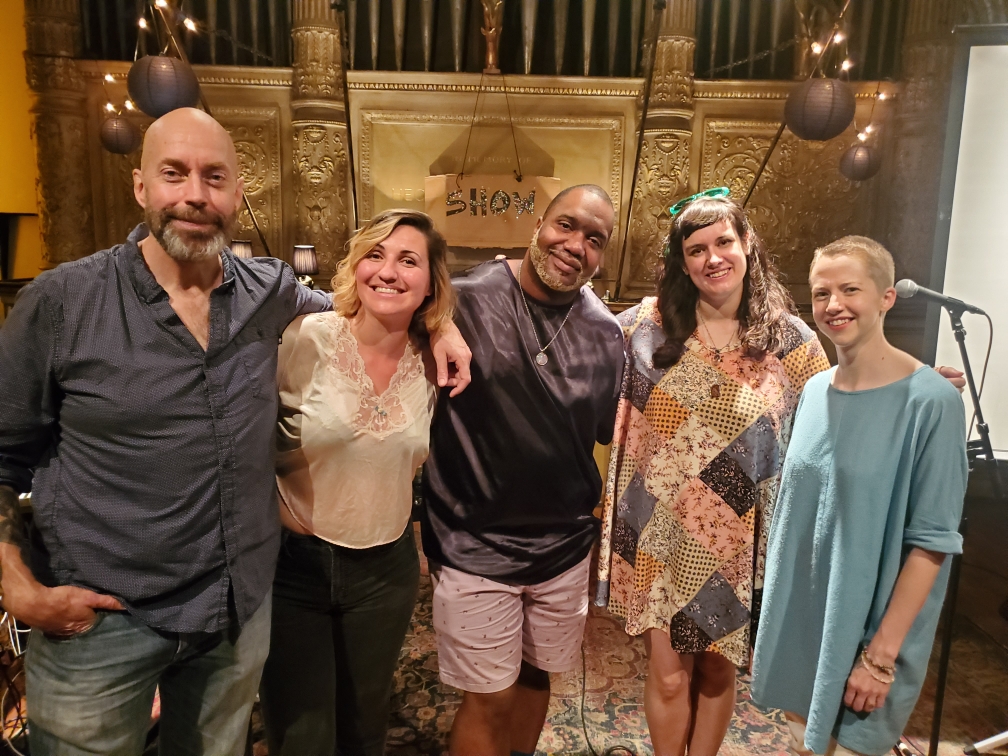Last night I sat at Sammy’s Noodle House in the West Village with a few friends. We were chowing down on Chinese food and chatting about the film, It’s A Wonderful Life, which we had just seen on the big screen. I’m not sure if I can call this a tradition yet, but my dear friend Ken and I did this last year on Christmas Day, and we will probably do it next year, too.
Pangs of thinking about and missing my mom are quite familiar at this time of year. She passed away in 2012, so I have had time to get acquainted with the grief that accompanies such a tremendous loss. I can’t say the grief has lessened, but I can say that I know it now. It’s always creeping around backstage, ready to lurch forward when cued by a particular memory or thought. It’s just there now, and in many ways I welcome it because it reminds me of her and the love we shared.
Last night at dinner, the conversation went deep into the history of classic films. We discussed the projects and studios related to the film we had just seen, and beyond. I contributed where I could, but I have to confess I knew far less about the topic than my dining companions did. I listened and made mental notes about films I should go back and take a look at. I also found some regret.
My mom absolutely loved old films. All through my childhood, into adolescence and beyond, my mom had old movies on the television. Even in her last few weeks, I would turn on the television and she would lose herself in these black and white films while she waited for her final days to pass.
Last night, I sat at that table wishing I had made a greater effort to share my mom’s love for classic films with her. When I was a kid, those things seemed so dusty and unrelatable, and then I got older and it seemed tremendously uncool to sit there with my mom watching old movies. Slowly the opportunity passed, and ultimately, our time to share things like this together passed for good.
But that’s not what I wanted to write about today. Well, yes, I have been thinking a bit about regret as my mom’s birthday approached. It’s today — the day after Christmas. I can’t remember how old she would have been today, but maybe that doesn’t really matter. What matters, in this moment anyway, is that my mom’s death reminded me how to live.
For all of my life, my mom was a champion of my creativity. I spent a lot of years afraid to invest myself fully into a creative life. My first major in college was in Radio and Television Production, in spite of my mom’s encouragement to go to music school. It just seemed too risky to believe in myself and my potential to have a career as a musician. Over the years I made incremental steps toward the creative life I wanted to have, cheered on and supported by my mom, even though we both knew I wasn’t allowing my authentic creative self out to play.
I think regret is a familiar feeling with each loss we experience in our lives, but when my mom died I discovered a regret I could actually do something about. I was still alive and could still honor my mom’s belief in little glimmers of creativity I had shown over the years. I could create in her memory.
That’s when I began working on my first show, Tentative Armor, in earnest. I had little shreds of stories, a rudimentary knowledge of Ableton Live music production software, and a lifetime of inspiration from artists like Yoko Ono and Laurie Anderson. It was time. I owed it to my mom, and more importantly, I owed it to myself to dig in and embrace this performing and creating artist I had been suppressing all of these years.
Not too surprisingly, the centerpiece of the show deals with losing my mom. It’s a piece called “Five Tasks of Grief,” which I am tremendously proud of. I shared my mom’s last month with her in her Arizona apartment, and one of the things I did to cope with that difficult time was to make daily gratitude lists. I shared these lists with a handful of friends and family as a way to keep everyone updated on how things were going, but also to remind myself that there is light in even the darkest times of our lives.
The first bit of the piece came pretty easily. I wrote about a piece of mail that came from the hospice that cared for my mom. It was called “Five Tasks of Grief.” I remember sitting with my director, Adam Fitzgerald, and reading these first few paragraphs about the paper to him.
“I don’t think this has anywhere else to go,” I said to him. Looking for a reason to give up and call this whole terrifying project a failure.
“Well,” he said, somewhat confused, “what are the five tasks? You can write about those.”
Hmmm. The obvious is often lost on me.
The piece took off from there. I decided to take key phrases from my gratitude lists and alternate them with my long time artist colleague Daaimah Mubashshir’s readings of the tasks. Everything came together in a most beautiful way. I added electronics, synths, piano, and string quartet. I am so proud of how this piece turned out. It’s one of those things I go back and listen to in disbelief that I could have actually created that myself.
There are so many bits of back story on this piece. I came so close to leaving it off the album, but now I can’t imagine the album any other way. I think of it and the two pieces that follow it, “Go.” and “Gone” as a part of the piece in a way, and the final track on the album, “Invocation” is about the transformation that occurred in me after my mom died.
One last bit about this piece. I first performed it in a public reading of the show at Judson Memorial Church. This was my first time ever to perform my original work, and I was terrified it was all too weird, or too pedestrian, or too self centered to be expecting people to come see me perform material that I had written about me.
After the show, a woman I had never met approached me. She told me that she almost didn’t come to show at all that night, but she needed to get out of the house. She was caring for her terminally ill grandmother and thanked me specifically for the “Five Tasks of Grief” piece. She said she had been feeling so lonely and disconnected in her grief for her grandmother, and my telling of the story of my time with my mom helped her feel more connected. That was the moment I understood the purpose of creating memoir work like this. I’ll cherish that moment forever.
So today, I’ll think of my mom. I’ll think of moving forward, cherishing memories, and of taking action instead of dwelling in regret. I hope sharing this background might help you to let go and move forward, too.
By the way, you can listen to “Five Tasks of Grief” streaming on Spotify, Apple Music, and pretty much anywhere else you like. You can grab a copy of the book and a free download of the album here.
Thanks for taking the time to read all of this, and I would LOVE to hear from you if it inspired any thoughts.
Love, Michael

